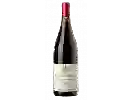
Domaine la Bonnelière47 No. 1 Blanc de Noir
This wine generally goes well with
Details and technical informations about Domaine la Bonnelière's 47 No. 1 Blanc de Noir.
Discover the grape variety: Datal
Intraspecific crossing obtained in 1956 between the Beirut date palm and the Alexandria muscatel. This variety is not widely cultivated in France, although it is registered in the Official Catalogue of table grape varieties, list A1. It can be found in South Africa, Portugal, etc.
Last vintages of this wine
The best vintages of 47 No. 1 Blanc de Noir from Domaine la Bonnelière are 2019, 0
Informations about the Domaine la Bonnelière
The Domaine la Bonnelière is one of of the world's greatest estates. It offers 37 wines for sale in the of Loire Valley to come and discover on site or to buy online.
The wine region of Loire Valley
The Loire Valley is a key wine region in western France. It follows the course of the Loire River on its Long journey through the heart of France, from the inland hills of the Auvergne to the plains of the French Atlantic coast near Nantes (Muscadet country). Important in terms of quantity and quality, the region produces large quantities (about 4 million h/l each year) of everyday wines, as well as some of France's greatest wines. Diversity is another of the region's major assets; the styles of wine produced here range from the light, tangy Muscadet to the Sweet, honeyed Bonnezeaux, the Sparkling whites of Vouvray and the juicy, Tannic reds of Chinon and Saumur.
The word of the wine: Aromatic
Character of a wine that is particularly expressive and rich in aromas. Some grape varieties, such as Gewurztraminer or Muscat, produce very aromatic wines.














